Melody for Two

Brief Synopsis
Cast & Crew
Louis King
James Melton
Patricia Ellis
Marie Wilson
Fred Keating
Dick Purcell
Film Details
Technical Specs

Synopsis
The night before he is to open a new club, band leader Tod Weaver fires his arranger Mel Lynch, who has demanded a new contract and a bonus for his arrangements. Tod dislikes Mel because he drinks too much and because he dated singer Gale Starr, who is now Tod's girl friend. Bill Hallam, the club's owner, is worried about opening with no arrangements and begs Mel to come back, but Mel refuses to work with Tod. Gale talks to Mel, offering him the bonus he wants if he will put a different name on the arrangements so that Tod will not realize that he is using Mel's work. Mel agrees, but then tells a reporter the true story. Tod is furious when he reads the papers the next day and quits his job and breaks up with Gale. For breaking his contract, Tod is banned from playing at other clubs. Subsequently, Bill hires Mel to work with Gale, who has taken over the leadership of the band. Realizing that Tod is broke, Gale arranges for him to get a job at a small and unpopular club. Inspired by his girl friend, Camille Casey, a bass player, the club's manager Remorse Rumson suggests that Tod lead a band composed of blonde women. For contrast, they hire a brunette, Lorna Wray, as the singer. Despite the gimmick, the band does not draw crowds, until Exodus Johnson, the janitor, suggests they try playing swing. Soon people are crowding to the club, and when Gale starts losing customers, she starts playing swing as well. Both groups are under consideration for a radio commercial, and for publicity, the sponsor decides to have a battle of the swing bands. Hoping to defeat Tod, Mel takes advantage of Lorna's unrequited love for Tod and gets her so drunk that she misses the audition. When she learns what happened, Gale steps in and sings with Tod's band. The sponsors love them and Camille suggests that they sponsor a program called the Battle of the Bands. After they agree to Camille's plan, Tod and Gale are reunited.

Director
Louis King
Cast
James Melton
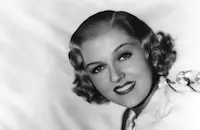
Patricia Ellis

Marie Wilson
Fred Keating
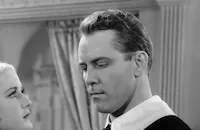
Dick Purcell
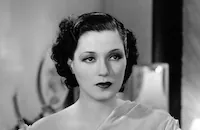
Winifred Shaw

Craig Reynolds
Charles Foy
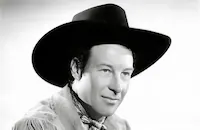
Gordon Elliott

Eddie Anderson

Eddie Kane
Gordon Hart
Harry Hayden
Lyle Moraine
Ferdinand Munier

David Carlyle
Stuart Holmes
Jeanne Hart

William B. Davidson
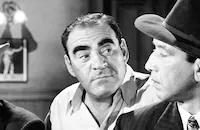
Ralph Dunn
Carlyle Moore Jr.
Shirley Lloyd
Spec O'donnell

Marjorie Weaver
Billie O'connor
Jack O'connor
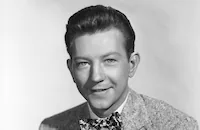
Donald O'connor
Crew
Milo Anderson
George Bricker
Bobby Connelly
Hugh Cummings
Al Dubin
Leo F. Forbstein
Bryan Foy
Esdras Hartley
Sig Herzig
Michel Jacoby
M. K. Jerome
Gene Lewis
Jack Saper
Carrol Sax
Jack Scholl
Arthur Todd
Robert Vreeland
Luci Ward
Jack L. Warner
Harry Warren
Joseph K. Watson

Film Details
Technical Specs

Articles
Donald O'Connor, 1925-2003
Born Donald David Dixon O' Connor in Chicago on August 28, 1925, he was raised in an atmosphere of show business. His parents were circus trapeze artists and later vaudeville entertainers, and as soon as young Donald was old enough to walk, he was performing in a variety of dance and stunt routines all across the country. Discovered by a film scout at age 11, he made his film debut with two of his brothers in Melody for Two (1937), and was singled out for a contract by Paramount Pictures. He co-starred with Bing Crosby and Fred MacMurray in Sing, You Sinners (1938) and played juvenile roles in several films, including Huckleberry Finn in Tom Sawyer - Detective (1938) and the title character as a child in Beau Geste (1939).
As O'Connor grew into adolescence, he fared pretty well as a youthful hoofer, dancing up a storm in a string of low-budget, but engaging musicals for Universal Studios (often teamed with the equally vigorous Peggy Ryan) during World War II. Titles like What's Cookin', Get Hep to Love (both 1942), Chip Off the Old Block and Strictly in the Groove (both 1943) made for some fairly innocuous entertainment, but they went a long way in displaying O'Connor's athletic dancing and boyish charm. As an adult, O'Connor struck paydirt again when he starred opposite a talking mule (with a voice supplied by Chill Wills) in the enormously popular Francis (1949). The story about an Army private who discovers that only he can communicate with a talking army mule, proved to be a very profitable hit with kids, and Universal went on to star him in several sequels.
Yet if O'Connor had to stake his claim to cinematic greatness, it would unquestionably be his daringly acrobatic, brazenly funny turn as Cosmo Brown, Gene Kelly's sidekick in the brilliant Singin' in the Rain (1952). Although his self-choreographed routine of "Make "Em Laugh" (which includes a mind-bending series of backflips off the walls) is often singled out as the highlight, in truth, his whole performance is one of the highlights of the film. His deft comic delivery of one-liners, crazy facial expressions (just watch him lampoon the diction teacher in the glorious "Moses Supposes" bit) and exhilarating dance moves (the opening "Fit As a Fiddle" number with Kelly to name just one) throughout the film are just sheer film treats in any critic's book.
After the success of Singin' in the Rain, O'Connor proved that he had enough charisma to command his first starring vehicle, opposite Debbie Reynolds, in the cute musical I Love Melvin (1953). He also found good parts in Call Me Madam (1953), There's No Business Like Show Business (1954), and Anything Goes (1956). Unfortunately, his one attempt at a strong dramatic role, the lead in the weak biopic The Buster Keaton Story (1957) proved to be misstep, and he was panned by the critics.
By the '60s, the popularity of musicals had faded, and O'Connor spent the next several years supporting himself with many dinner theater and nightclub appearances; but just when it looked like we wouldn't see O'Connor's talent shine again on the small or big screen, he found himself in demand at the dawn of the '90s in a string of TV appearances: Murder She Wrote, Tales From the Crypt, Fraser, The Nanny; and movies: Robin Williams' toy-manufacturer father in Toys (1992), a fellow passenger in the Lemmon-Matthau comedy, Out to Sea (1997), that were as welcoming as they were heartening. Survivors include his wife, Gloria; four children, Alicia, Donna, Fred and Kevin; and four grandchildren.
by Michael T. Toole

Donald O'Connor, 1925-2003
Quotes
Trivia
Notes
The film's working title was King of Swing. It was also called Special Arrangements. Richard Macauley's name was misspelled as "Macawley" on screen. This was James Melton's last major screen role.














